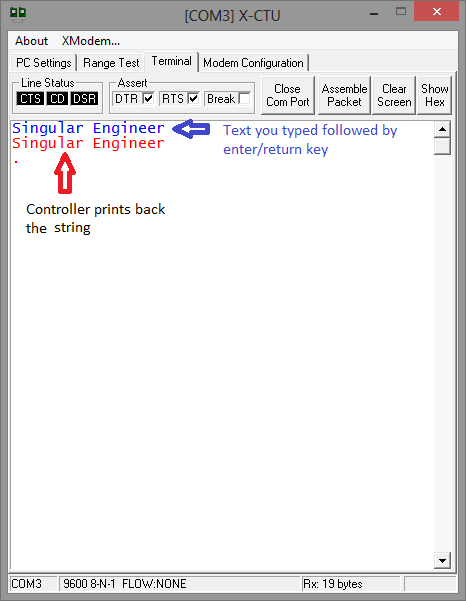

- Installation pbp3 mplab x install#
- Installation pbp3 mplab x zip file#
- Installation pbp3 mplab x serial#
- Installation pbp3 mplab x pro#
- Installation pbp3 mplab x software#
Like the MPLAB®X IDE, the MPLAB Data Visualizer is based on the NetBeans Platform. Save a snapshot of plotted data as CSV or JSON.Supported Products: MPLAB X Release Notes
Installation pbp3 mplab x install#
To install MPLAB-Data-Visualizer-Standalone(Windows), download this package and open it in IDE. In order to ensure the best possible user experience, make sure that kits or tools used with the MPLAB Data Visualizer are updated to the most recent firmware version.ĭocumentation is shipped with the product and can be opened from the DataVisualizer User Interface once started.
Installation pbp3 mplab x pro#
The DGI interface is supported by the Microchip Curiosity Nano and Xplained Pro platforms, as well as the Microchip Power Debugger and Atmel-ICE.

When using a COM port, any target or board can be supported, also user-specific boards. MPLAB Data Visualizer supports targets that stream data over a (virtual) COM port, as well as tools implementing the Data Gateway Interface (DGI) USB interface. The MPLAB Data Visualizer plug-in must be installed in MPLAB X version 5.30 or later for correct operation. MPLAB Data Visualizer comes as a stand-alone application and as a plug-in to MPLAB X.
Installation pbp3 mplab x serial#
Installation pbp3 mplab x zip file#
Download the zip file from Microchip Galleryħ. This plugin can be downloaded as a zip file for offline installation in MPLAB X IDE.ġ. Just follow the simple steps in the getting started tab to see all the available plug-ins and to install the DCDT. plug-ins, including this Digital Compensator Design Tool, are free, available and ready to install once the MPLAB® X IDE has been installed. The tool will then generate the equivalent digital compensator streamlining the transition from analog to digital compensator design.Īll MPLAB® X IDE. The analog type II/III compensators allow analog designers to input their existing analog compensator designs into the tool either by passive R/C components or by entering pole/zero frequency points. The DCDT supports many different compensator types such as the digital 3-pole/ 3-zero (3P3Z), digital 2P2Z, digital PID, and analog type II/III. Depending on the control scheme, different compensators may be required. The DCDT currently allows users to develop voltage mode control and peak current mode control applications with support for average current mode control to be available shortly. frequency data points that can be generated from a simulation environment or even from a network analyzer. The tool also supports a data import option where the plant transfer function is a table of phase/gain vs. This can be entered as a polynomial equation or in pole/zero form (up to 5th order systems).

With a topology independent architecture, the tool requires a mathematical expression of the plant transfer function. The DCDT is topology independent which allows the most sophisticated converters to be analyzed.

Installation pbp3 mplab x software#
Once the desired performance is obtained the DCDT will automatically calculate the compensator coefficients and scaling parameters and generate software files to be used with the free SMPS Control Software Libraries. Along with analyzing the closed loop performance via Bode Plots, the user can verify stability by using the DCDT’s root locus and Nyquist plots. The DCDT incorporates all feedback gains and delays to provide the most accurate model of the control system. The Digital Compensator Design Tool (DCDT) helps power supply designers by simplifying the overall process of determining the digital compensator coefficients and analyzing the control system performance.


 0 kommentar(er)
0 kommentar(er)
